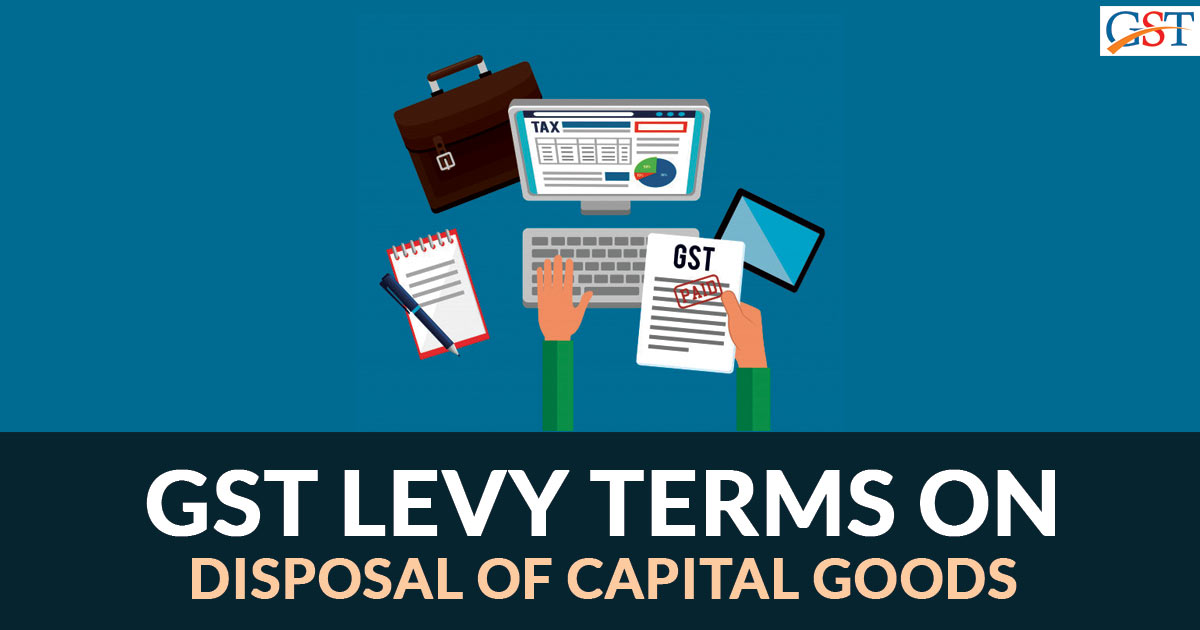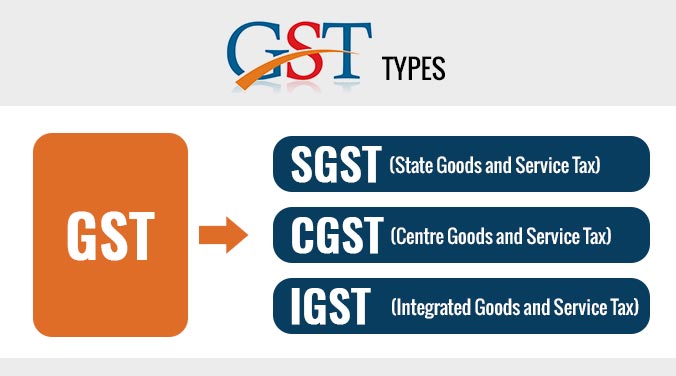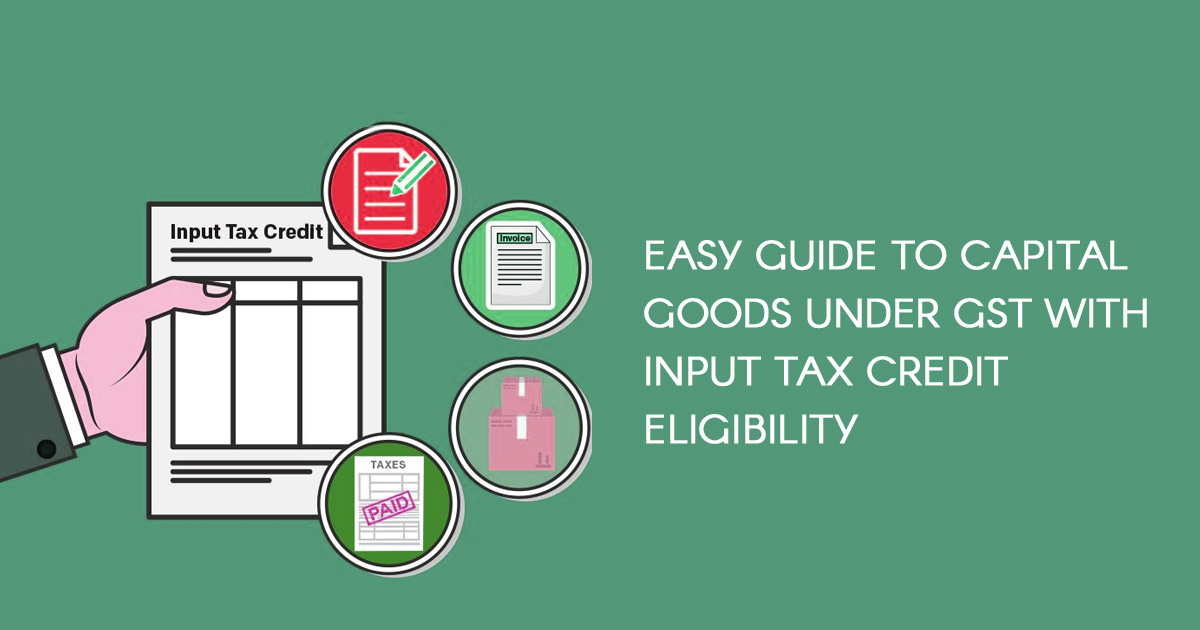
Capital Good – Defined Under CGST Act 2017
As mentioned under section 2(19) of the Central Goods and Service Act 2017, Capital Goods under GST are termed as goods whose value is capitalized (recorded as an asset) in the Books of Accounts which can either be claimed by the assessee as the Input Tax Credit (ITC) 
GST on Disposal of Capital Assets or Goods
If no ITC is Claimed on Capital Goods
- If ITC is not availed and the asset is not disposed of free of cost then it will be counted as supply under GST that has no consideration. Also under schedule II, it will not be considered as supply
- The consideration that is charged will be counted as supply under section 7(1)(a) of CGST act 2017 on which tax will be levied
If ITC is Claimed on Capital Goods:
Capital Goods as identified by GST can be read under the below section:
- Section 18 (6) of the CGST Act
- Schedule I of the CGST Act
- Schedule II of the CGST Act
- Rule 44 of the CGST Rules
As mentioned under section 18(6) of the CGST Act 2017 
Schedule II – It depicts the condition where the sale of capital goods is taxable. As mentioned under Schedule II the for a capital sale to be taxable, the following conditions must be there:
- The capital goods must be part of a business asset
- They should be transferred so that they are no more the asset of the business
- They should be transferred with approval from the person carrying on the business
Please Note: The assets are taxable when they are sold by the wish of the person carrying on the business. So clearly in the case of an accident, fire, or any disaster/calamity tax shall not be paid on those assets.
Schedule I – As mentioned under schedule I, the permanent disposal of assets (made with or without consideration) will be identified as supply on which ITC can be availed. This means tax will be charged on the capital goods that are written off from the books of accounts (due to any reason).
All the aforesaid provisions are duly mentioned in the CGST Act. For further valuation related to the procedure for the sale of capital goods laws under Rule 44 are to be referred to. Here the process becomes a bit complicated and needs more attention:
As per Rule 44, the Input Tax Credit availed on capital goods under GST 
Illustration:
Assume that the ITC availed on an Asset worth Rs 50000 is 5000018% (Rs 9000) but the actual sale value is Rs 4000. Tax paid on actual sale value = 4000*18% = Rs 720.
The Reversed ITC will be as Follows:
| Sr No. | Particulars | Ammount |
|---|---|---|
| 1 | Purchase Cost of Asset | 50000 |
| 2 | Tax Rate | 18% |
| 3 | ITC Claimed | 9000 |
| 4 | Useful Life of Asset | 5 Years (60 Months) |
| 5 | Asset in Use | 4 Year 7 Months |
| 6 | Balance Life | 5 Months |
| 7 | ITC Reversal | (9000*5/60750 |
| 8 | Actual Tax Paid | 720 |
| 9 | Reversal = Higher or 7 and 8 | 750 |